Austin Gets Woke: The People’s Republic of Austin Chafes at Being Surrounded by Texas, But Ignores the Lessons of History
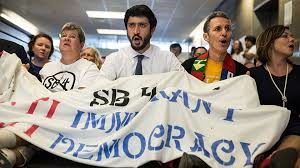
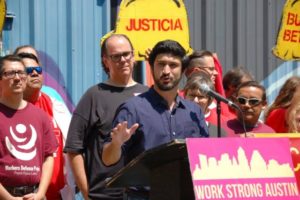
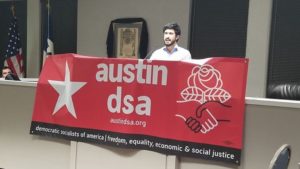
A slightly-modified version of this article appeared in City Journal on June 25, 2018 as “Woke City.” Featured in Real Clear Policy the next day. And “column du jour” at WND.com.
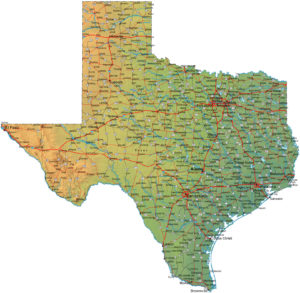
It is perversely ironic that prosperous “red” states (such as Texas) face the risk of political transformation by attracting new arrivals from failing “blue” states (such as California). Seeking jobs, these internal migrants tend to congregate in urban areas, which already lean Democratic. Compounding the impact, many of the transplants are young, college-educated, and unmarried, a demographic tailor-made for progressive politics. Cities with high-tech economies, and a reputation for entertainment—in the form of live music, craft beer, or trendy restaurants—become a mecca for aspiring hipsters. It is not surprising, therefore, that Austin, with its vibrant economy and hyped cultural scene, has experienced explosive population growth in the past decade. Texas’s once-sleepy capital is now the Lone Star State’s fourth-largest city.
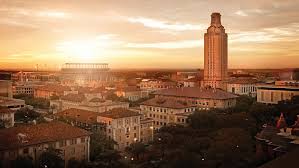
The massive influx of millennials and California refugees to Austin–also home to the flagship campus of the University of Texas–has coincided with a distinctively leftward shift in the city’s already liberal politics. Since the creation of single-member districts for the city council in 2012, Austin has gone fully “woke,” electing activists as radical as any local pols in America today—on par with Gotham’s mayor Bill de Blasio. Despite a conservative statewide electorate in Texas, the ten-member city council in Austin includes just one—vulnerable—Republican, Ellen Troxclair. Likewise, nearly every office-holder in surrounding Travis County, including all the trial court judges, are Democrats. Both city and county declared themselves “sanctuaries” for illegal immigrants, a status overridden by state law (SB4) last year amidst fierce opposition.

With hegemony comes immoderation. In recent years, in addition to adopting the usual assortment of fashionable—but impractical—urbanist transportation initiatives (unused bike lines, draconian parking restrictions, and the like), Austin has enacted a series of business-unfriendly ordinances. The measures, condemned by Gov. Greg Abbott as “a patchwork quilt” undermining state law, include forbidding retailers to provide customers with disposable plastic bags, prohibiting employers from asking applicants about prior criminal convictions, and requiring businesses to provide employees with paid sick leave. Austin has also adopted a “living wage” for city employees (with the lowest rate nearly twice the federal minimum wage level), and authorized the expenditure of $200,000 in taxpayer funds to provide legal representation to illegal immigrants facing deportation.
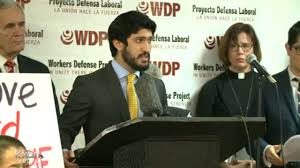
Many of these initiatives were led by Austin’s resident firebrand, council member Greg Casar, whose priorities include “social equity,” “shared prosperity,” and the elimination of “laws and practices that contribute to the mass incarceration of youth, people of color, and the poor.” Casar, who previously served as an organizer for the Alinsky-inspired Workers Defense Project, has emerged as the leader of a hard-Left coalition that includes the local Democratic Socialists of America chapter. Austin’s metamorphosis into a hotbed of identity politics, intersectionality, and socialistic policies is somewhat incongruous because Austin is the least diverse of Texas’s major cities. Whites are overrepresented compared to their share of the state population, and blacks and Hispanics are underrepresented. This is largely due to Austin having the state’s highest home prices; many minorities simply cannot afford to live in Austin.
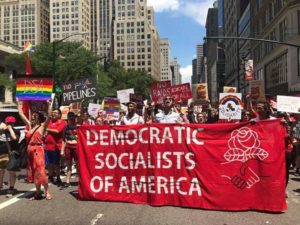
Although Austin’s business community is unhappy with the city’s anti-free market meddling, it prefers to battle the measures selectively in the state legislature, and the courts, rather than by fielding an opponent to Casar or his leftist colleagues. That is because the city’s progressive voters enthusiastically support such socially-conscious “reforms”—in 2016, Hillary Clinton carried Travis County by nearly 40 percentage points–and the single-member districts allow council members to pander to the racial, ethnic, and socio-economic profile of their respective fiefdoms. (In a move that now seems profoundly misguided, the local Republican Party supported the campaign to amend the city charter to eliminate at-large voting, thinking the move would temper the council. Precisely the opposite has occurred.)
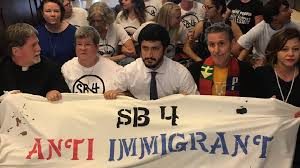
Casar’s latest crusade is the most controversial yet. Earlier this month, he successfully urged his colleagues on the city council unanimously to adopt resolutions declaring Austin to be the state’s first “freedom city.” The resolutions instruct the police department to evade the provisions of SB4, the anti-sanctuary law which requires law enforcement officers to question offenders about their immigration status, by also informing suspects that they need not answer the immigration questions. Immigrant rights activists despise SB4, denouncing it as racist. Casar was a vocal opponent of the bill, going so far as getting arrested in 2017 for staging a sit-in at the governor’s office to protest its passage. The resolution defiantly thumbs the city’s nose at SB4.
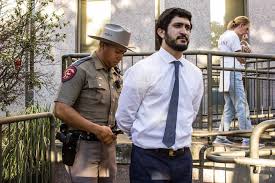
The resolutions further direct police officers to avoid arrests for certain non-violent misdemeanors, including those for smoking marijuana in public, having drug paraphernalia, driving without a license, and taking part in petty thefts. The rationale for effectively de-criminalizing such offenses, Casar explained, is that “Poor people of color in our city are over-punished and over-incarcerated. If people are being arrested less, we can also prevent people from being put in the deportation pipeline.” Ignoring data showing that blacks and Hispanics are responsible for committing a disproportionate amount of certain crimes, Casar blamed the high percentage of minorities arrested on police racism. The solution is to let criminals break the law without fear of arrest (the police are still allowed to issue citations).

Austin’s declaration of a moratorium on arrests for “low-level” criminal offenses ignores the lessons of “broken windows” policing. As City Journal has documented at length, “small crimes of disorder, left unchecked, lead to more serious crime.” Under mayor Rudi Giuliani and police commissioner William Bratton, the rampant crime and urban chaos prevalent in New York City in the 1980s were curbed in large part by focusing on so-called quality-of -life offenses that had turned the Big Apple’s public spaces into the equivalent of Dante’s Inferno: “minor” crimes such as graffiti, petty theft, public drug use, aggressive panhandling, vagrancy, and the like. By foolishly hamstringing police officers’ ability to make arrests for such crimes, the Austin city council virtually assures a deterioration of the quality of its much-vaunted downtown district. Public order makes urban life possible. How will the virtue-signaling hipsters react when Austin’s beloved 6th Street morphs into the seedy Times Square of yore?
We shall surely find out.

P.S. Is anyone in the Republican-controlled state legislature paying attention to Austin’s attempt to sabotage the Texas Miracle? What is the position of the Governor, who has publicly rebuked efforts to “California-ize” the Lone Star State? Greg Casar and his socialist colleagues on the Austin City Council are trying to bolshevize Texas!

































